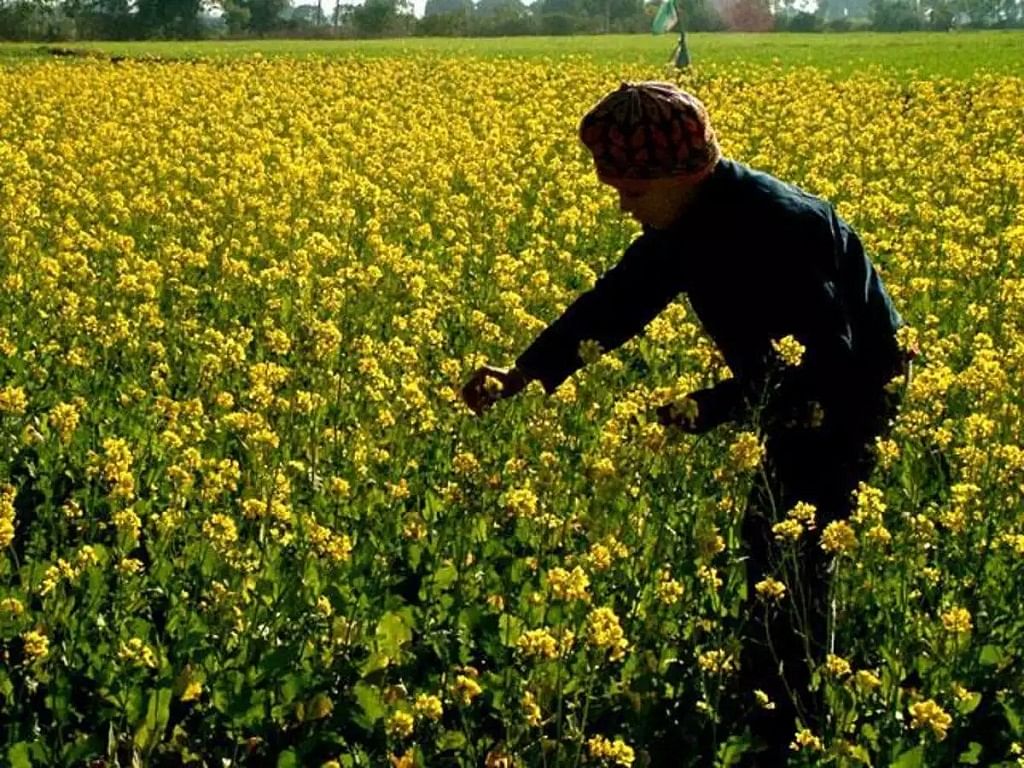
The edible oil industry in India has been facing a series of challenges that have led to complaints from both consumers and farmers. While consumers have been concerned about the high prices of edible oil, farmers are now complaining about the opposite - the prices of mustard seeds, a major rabi crop in Rajasthan and Madhya Pradesh, have dropped below the Minimum Support Price of Rs 5,450 per quintal.
Ajay Jhunjhunwala, the president of the Solvent Extractors Association of India (SEA), the apex body of the edible oil industry, has written to the secretaries of the Ministry of Food and Public Distribution and the Ministry of Commerce, requesting immediate intervention to prevent the "distress sale of mustard seeds". Jhunjhunwala has cautioned that as the arrival of mustard increases, prices may dip even further, which could lead to significant financial losses for farmers.
One of the primary reasons for the decline in mustard seed prices is the free import of palm oil, which has flooded the domestic market and resulted in a collapse of mustard seed prices. The higher volume of palm oil imports has put the domestic industry under stress and is likely to lead to more distress sales unless urgent measures are taken.
To address this situation, Jhunjhunwala has proposed the imposition of a 20% import duty on palm oil. This measure would help mustard seeds retain their price and support the survival of the domestic refinery industry. It is important to note that the collapse of mustard seed prices is not only impacting farmers but also the entire edible oil industry in India.
The previous year, the prices of edible oil skyrocketed to Rs 200 per litre due to various factors, such as the outbreak of the ongoing Russia-Ukraine war and crude oil trading at a high price in the international market. Additionally, Indonesia, the largest edible oil producer, clamped down on free exports, making the oil more expensive.
To soften the prices, the government intervened and reduced duty and cess on edible oils and allowed free imports to ensure better availability. These measures were successful in bringing down the prices of some edible oils. For example, palm oil was trading at Rs 112.75 from Rs 139.19 per litre on February 28, 2022, Soya Oil from Rs 151.35 to Rs 145.8 and vanaspati from Rs 144.03 to Rs 135.81.
However, sunflower oil increased slightly from Rs 156.66 to Rs 157.51, and groundnut oil rose from Rs 175.08 to Rs 189.40, according to the data from the price monitoring cell of the Ministry of Food and Public Distribution. The edible oil industry in India is facing a multitude of challenges, ranging from high prices to collapsing prices of certain crops. The government must take urgent measures to support the industry and ensure that farmers and consumers alike are not adversely affected.
Jhunjhunwala's proposal to impose a 20% import duty on palm oil is a potential solution that could help mitigate the impact of free imports on the domestic market and support the survival of the domestic refinery industry.
















